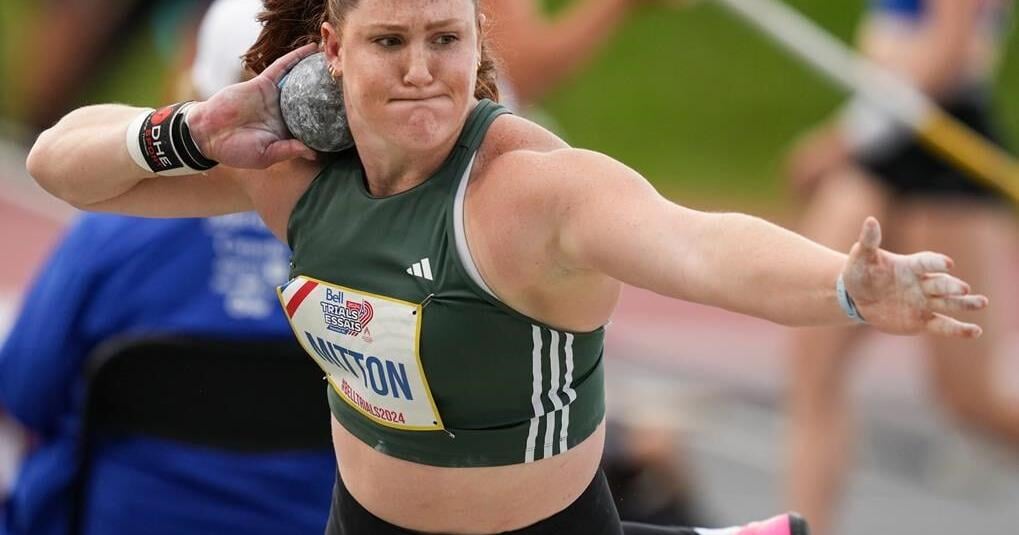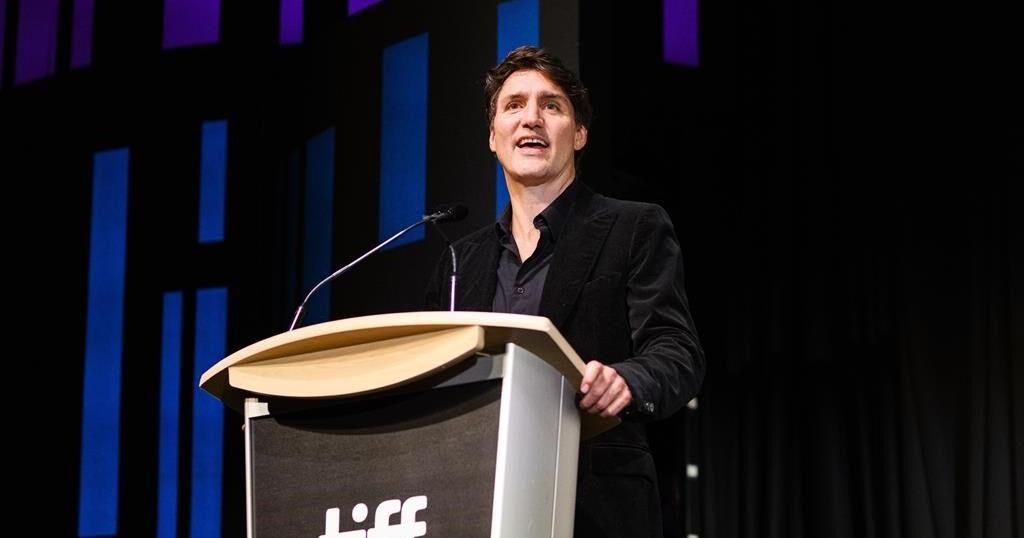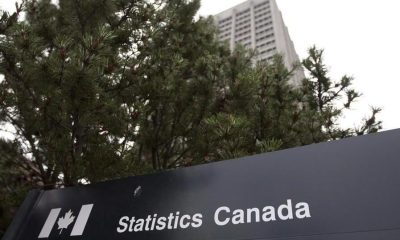Looking to build on a wealth of recent success, Canada’s athletics team enters the Paris Olympics with three reigning world champions and a number of medal contenders.
Canada’s track and field squad grabbed six medals at each of the last two Games. The closest it had come to that level since winning nine medals in 1932 was five at the boycotted 1984 Los Angeles Olympics.
Canadian athletes also won six medals at the 2023 world championships, the second-most ever at a single worlds.
“It’s really exciting to be on a team that’s about to win a lot of medals because the momentum that you feel as the team starts to pick a few up, … it elevates the entire team,” said Sarah Mitton, the world’s second-ranked women’s shot putter and a silver medallist at last year’s worlds.
Mitton was a part of a trio that put Canadian throwing on the map last summer, with Ethan Katzberg and Camryn Rogers earning gold in the men’s and women’s hammer throw events.
The 28-year-old Mitton said seeing the success of her teammates gave her a boost at worlds.
“Ethan won the hammer (and) everyone was mind blown, and the excitement of that carried into other people’s performances, especially mine,” she said. “My other teammate Camryn goes out and wins a gold medal and I’m like, ‘Holy crap, this is amazing. The throwers are on, now I’ve got to step up. I’ve always wanted to step up but now they’ve done it, it would be awesome to join them.’
She got a further boost when Marco Arop won the 800 metres in the middle of her competition.
“So I’m standing here as he’s doing his final 100, I could feel that,” she said.
“I ended up going over to (coach) Richard (Parkinson) for some technical advice and Marco was doing his victory lap and we have a picture with him, he gave me a fist bump and a hug, and he said, ‘Now it’s your turn.’ And so that feeling is really cool and we’re just in an awesome place.”
Canada’s athletics team took a major blow earlier this week when Pierce LePage, the reigning world champion in the men’s decathlon, withdrew from the Paris Games due to a herniated disc in his back.
LePage was expected to form a strong 1-2 punch with Damian Warner in the decathlon at Paris. World Athletics ranks LePage as the top decathlete in the world, with Warner at No. 2 after finishing second at the 2023 world championships in Budapest. Warner, from London, Ont., heads to Paris as the reigning Olympic champion.
Reigning Olympic 200-metre champion and six-time medallist Andre De Grasse looks to add to his medal haul in the 100, 200 and 4×100 relay.
“The depth is really good, I mean there are some guys out here that surprised me, I didn’t even know who they were before this,” De Grasse said of the 4×100 relay team during Canadian Olympic trials in June.
“It’s great to have a new guy come in here Eli (Eliezer Adjibi), he’s going to help us toward our relay goals, and then of course the veterans like myself, Aaron (Brown) and (Brendon) Rodney, we’re just going to carry that momentum and try to get a gold in Paris in the relay.”
Meanwhile, Canada’s women’s 4×400 relay team looks to make noise after a fourth-place finish at the 2023 worlds and a bronze at this year’s World Relays.
Athletics head coach Glenroy Gilbert said the team is “definitely” one of Canada’s strongest.
“It is a strong team in the sense that it’s very well-represented across the event groups — the sprinters, the throwers, multi-eventers, we’ve got marathoners, racewalk with Evan (Dunfee).
“We’ve got athletes around everywhere. It’s just making sure that they’re healthy and fit and able to perform on the day that it counts.”
However, Gilbert isn’t trying to predict a medal count for Canada at the Games. He also wants to see who’s setting personal or season bests, along with top-eight performances, to get a view of what the 2028 Olympic group could look like.
“We can’t already forecast medals in Paris (yet),” he said. “We are fully aware that medals are the ultimate gauge of success but there are others that also build our sport, right? Because we can’t just live in that moment where it’s just 2024, we’re also thinking about 2028.
“What does that look like, what’s the next crop of athletes coming through, and we can see some of that indication from the Olympic Games in Paris.”
The nine athletics medals won in 1932 are the most Canada has earned at an Olympic Games, with eight at the 1928 Games sitting a close second.
Asked whether this group could reach those accomplishments, Gilbert says there’s always a chance.
“There’s always that potential. … It could be, but we can’t count those things until it happens,” he said.
This report by The Canadian Press was first published July 20, 2024.





















